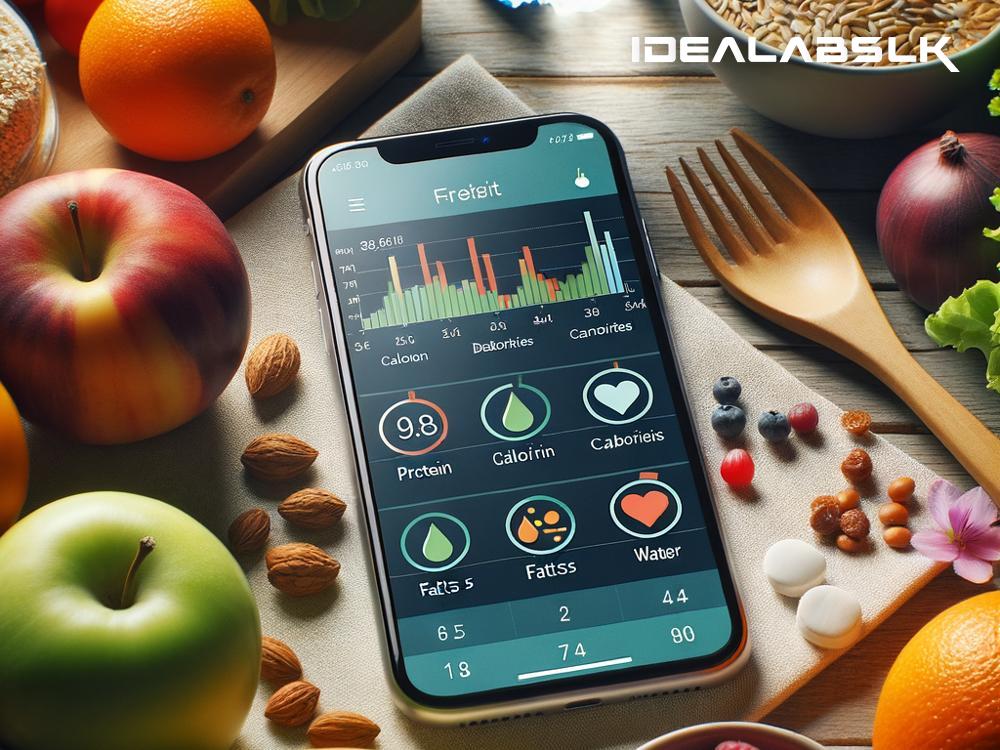In our fast-paced world, keeping track of what we eat and making sure our diet is balanced can be quite a challenge. That's where Artificial Intelligence (AI) steps in, offering an innovative solution to monitor and improve our nutrition through personal health assistant apps. These apps are not just changing the way we think about food; they're revolutionizing our approach to healthy living.
Understanding AI in Nutrition
AI in nutrition involves smart technology that learns from our eating habits to offer personalized diet advice and meal planning. It's like having a nutritionist in your pocket, but one that's available 24/7. These personal health assistant apps use AI algorithms to analyze data related to our dietary preferences, health goals, and nutritional needs, making recommendations that are tailored just for us.
How AI is Making a Difference
1. Personalized Nutrition Plans: One of the most significant ways AI helps is by creating customized nutrition plans. By considering factors like age, weight, health conditions, and fitness goals, AI can suggest meal plans that not only aim to improve health but can also adapt to our taste preferences and lifestyle.
2. Tracking and Analyzing Diet: AI-powered apps make it easy to keep an eye on what we're eating. By simply logging our meals, the app can give insights into our nutritional intake, pointing out deficiencies or excesses. This feedback loop is vital for making informed choices about our diet.
3. Encouraging Healthy Habits: Consistency is key to a healthy diet, and AI helps us stay on track. Whether it's reminders to drink water, prompts to log meals, or motivational messages to keep us going, these apps use gentle nudges to encourage healthier behaviors.
4. Simplifying Meal Planning: Deciding what to cook can be a headache, but with AI, it's a breeze. Based on our nutritional goals and food preferences, these apps can suggest recipes and even create shopping lists, making meal prep simpler and ensuring we stick to healthy choices.
5. Educating Through Feedback: What sets AI apart is its ability to provide real-time feedback. This isn’t just about tracking calories; it's about understanding nutrition. For example, if you're low on iron or protein, the app can suggest foods to boost your intake. This educational aspect empowers individuals to make healthier decisions.
Real-Life Examples
Apps like MyFitnessPal, PlateJoy, and Yazio are leading the charge in integrating AI to help users manage their nutrition better. They offer features ranging from barcode scanning for easy food logging to generating personalized nutrition insights. These tools are transforming the landscape of health and nutrition, making it easier for individuals to achieve their wellness goals.
The Future of Nutrition with AI
The potential of AI in nutrition is vast. Imagine an app that could analyze your blood test results to tailor your diet plan or even use genetic information to predict how your body might react to certain foods. The goal is to make nutrition highly personalized, going beyond one-size-fits-all advice to truly cater to individual needs.
Embracing Technology for Health
Adopting AI-driven personal health assistant apps can be a game-changer for those looking to improve their nutrition. It’s a way of leveraging technology to take better care of ourselves. However, it's essential to remember that these apps are tools to aid us in our journey toward better health. Real change comes from making informed choices and consistent efforts, guided by the insights these apps provide.
In conclusion, the integration of AI in monitoring and improving nutrition is a testament to how technology can have a profound impact on our lives. By offering personalized advice, simplifying meal planning, and providing educational insights, AI-driven health assistant apps are becoming indispensable tools for anyone looking to lead a healthier lifestyle. As we move forward, the role of AI in personal health is only set to grow, promising a future where technology and nutrition go hand in hand towards fostering well-being.

